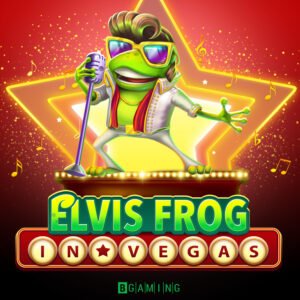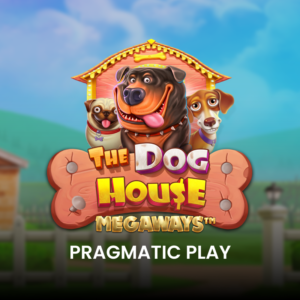What Online Casino Should I Play in Canada?
Selecting the right online casino in Canada requires understanding the legal landscape and available options. While many platforms are accessible to Canadian players, making an informed choice matters for a good gaming experience.
Provincial platforms like PlayNow.com offer government-regulated options. Run by the BCLC (British Columbia Lottery Corporation), these sites provide security and responsible gambling tools for residents of certain provinces.
In Ontario, iGaming Ontario oversees regulated online gambling, creating a framework where licensed operators can legally serve players within the province.
When evaluating online casinos, consider these factors:
| Factor | Importance |
|---|---|
| Licensing | Essential for legal protection |
| Game variety | Ensures entertainment value |
| Banking options | Affects deposit/withdrawal ease |
| Support services | Critical for problem resolution |
French-speaking players may find certain platforms offer specialized services in their preferred language. Most reputable sites provide multiple banking methods for convenient transactions and competitive welcome bonuses.
Remember that each province has different regulations, so availability of certain platforms may vary based on your location within Canada.
Legal Gambling Within Canada
Historical Development of Canadian Gambling Legislation
The journey of gambling legislation in Canada has deep historical roots. Indigenous populations engaged in early betting activities using simple tools like sticks long before European contact. With colonization came card games that eventually developed into the poker and blackjack many enjoy today.
The late 19th century marked the beginning of formal gambling regulation in Canada. The most significant shift occurred in 1970 when the federal government granted provinces authority to establish and oversee their own gambling frameworks. This decentralization led to the growth of land-based casinos across the country.
Current Online Gambling Laws Across Canadian Provinces
Online gambling in Canada operates under a unique provincial framework where each region establishes its own regulatory approach. The Criminal Code provides the national foundation, but implementation varies significantly between provinces.
Key developments include:
| Year | Legislative Development |
|---|---|
| 2021 | Safe and Regulated Sports Betting Act received Royal Assent |
| 2022 | Ontario launched regulated online gambling market |
| 2023 | British Columbia expanded online offerings |
These changes have created a more open environment for games of chance online while attempting to balance player protection with gaming opportunities.
Regulatory Authorities Governing Canadian Gaming
Provincial gaming authorities form the backbone of gambling regulation in Canada. These organizations hold responsibility for:
- Licensing operators
- Ensuring fair play standards
- Implementing responsible gambling measures
- Collecting gaming revenue
Indigenous nations maintain special gaming jurisdictions through government agreements, allowing them to operate casinos on designated lands. This multi-layered regulatory approach creates a complex but comprehensive oversight system for both traditional and online gambling activities throughout Canadian territories.
Find a Casino Near You
Looking for a casino in your area? The Local Casino Finder helps you locate physical gambling facilities across Canada. You can discover various betting options including:
- Traditional table games
- Electronic gaming machines
- Horse racing venues
Many facilities offer both gaming and entertainment in comfortable settings for a complete night out.
Canadian Gambling Landscape
How Often Canadians Gamble
Many Canadians regularly participate in gambling activities. The country has a welcoming atmosphere for gamblers, which has led to strong participation rates. Online poker has seen particularly rapid growth, with many Canadians joining virtual tables daily. Both casual and serious players contribute to the country’s active gambling community.
Accessing International Gambling Platforms
Canadians enjoy freedom to access international online gambling sites without government restrictions. This open approach allows players to choose from a wide variety of betting options worldwide. Many Canadians take advantage of this flexibility, especially compared to citizens of countries with stricter gambling limitations.
Money Transfers for Online Gambling
Depositing and withdrawing funds at online casinos is completely legal for Canadian residents. Players commonly use these payment methods:
- Credit/debit cards
- E-wallets
- Bank transfers
- Cryptocurrency
These options provide convenient ways to manage gambling funds safely and efficiently.
Winnings and Taxation
One significant advantage for Canadian gamblers is that winnings aren’t taxable in most circumstances. This tax-free status applies to:
- Casino winnings
- Sports betting profits
- Lottery prizes
- Horse racing winnings
This policy makes gambling financially attractive compared to jurisdictions where winnings face heavy taxation.
Betting with Canadian Currency
Most reputable online gambling platforms offer CAD betting options specifically for Canadian players. This convenient feature means:
- No currency conversion fees
- Easier budget tracking
- Simplified deposits and withdrawals
- More transparent pricing
Playing in Canadian dollars enhances the overall gambling experience by eliminating currency-related complications.
Safeguarding Your Online Casino Experience in Canada
Protecting Your Funds When Gambling Online
Canadian players need to verify that their chosen online casino holds proper licensing from established authorities. Look for platforms that display certification from independent auditors like eCOGRA, which validates both security and fairness standards. Sites operating under provincial regulatory frameworks such as iGaming Ontario or BCLC offer additional protection through government oversight. Before depositing money, check for secure payment methods and clear terms regarding withdrawals.
Fair Play Standards and Verification
Most reputable online casinos implement Random Number Generators (RNGs) to ensure game outcomes remain unpredictable and fair. These systems undergo regular testing by third-party organizations to verify their integrity. When selecting a gaming platform, look for:
- Published payout percentages
- Transparent terms and conditions
- Evidence of regular auditing
- Visible licensing information
The regulated environment established by provincial authorities helps maintain consistent standards across gaming platforms.
Addressing Concerns About Game Integrity
If you suspect unfair practices during gameplay, follow these steps:
- Document the issue thoroughly, including timestamps and game details
- Contact the casino’s customer support team directly
- If unsatisfied with their response, escalate to the licensing authority that oversees the casino
- Consider filing a complaint with your provincial gaming regulator
Canadian players have protection through regulatory bodies that can intervene when legitimate concerns arise about game integrity.
Resources for Responsible Gaming in Canada
Canada offers robust support systems for those seeking help with gambling concerns. The Responsible Gambling Council provides valuable research, educational tools, and prevention strategies to promote safer gambling habits.
Across the country, support groups like Gamblers Anonymous hold regular meetings in most provinces, offering peer assistance through:
- In-person community meetings
- Phone support lines
- Email correspondence
- Online resources
These services help ensure that lottery revenues contribute positively to society while minimizing potential harms. Many organizations work to balance the health care needs of those affected by problem gambling with the recreational aspects that most Canadians enjoy responsibly.
Frequently Asked Questions About Gambling in Canada
Online Gambling Regulations Across Canada
Online gambling operates under provincial jurisdiction in Canada. Each province and territory establishes its own regulatory framework. Most provinces maintain government-operated gambling platforms, while some have opened markets to private operators under strict licensing requirements. For example, online gambling companies are allowed to advertise in Ontario through proper channels. Players should verify they’re using properly licensed platforms to avoid legal complications.
Age Requirements for Gambling Activities by Region
Gambling age restrictions vary across Canadian jurisdictions:
| Province/Territory | Minimum Age |
|---|---|
| Alberta | 18 |
| British Columbia | 19 |
| Manitoba | 18 |
| New Brunswick | 19 |
| Newfoundland | 19 |
| Northwest Territories | 19 |
| Nova Scotia | 19 |
| Nunavut | 19 |
| Ontario | 19 |
| Prince Edward Island | 19 |
| Quebec | 18 |
| Saskatchewan | 19 |
| Yukon | 19 |
Private Poker Game Guidelines
Hosting private poker games is permitted in Canada with important restrictions. These games must:
- Not be advertised publicly
- Not generate profit for the host (no “rake” or house percentage)
- Involve only willing participants
- Follow local municipal bylaws
The Criminal Code of Canada specifies that unlicensed gambling operations are illegal, but social games among friends typically fall outside enforcement priorities.
International Students and Gambling Participation
International students in Canada may participate in gambling activities provided they:
- Meet the minimum age requirement for the province/territory
- Possess valid identification
- Follow the same rules as Canadian residents
There are no citizenship restrictions on legal gambling participation, though students should understand that gambling is only legal through licensed facilities.
Provincial Variation in Gambling Legislation
Gambling regulations differ significantly between provinces. Ontario has established one of Canada’s most progressive frameworks, with the Alcohol and Gaming Commission of Ontario overseeing both land-based and online operations. Indigenous Nations have special considerations in some provinces, with agreements allowing them to operate gaming facilities on reserve lands according to specific protocols.
Recent Legislative Developments
Key recent changes to Canadian gambling laws include:
- Legalization of single event sport betting in 2021
- Expansion of regulated online gaming markets in several provinces
- Enhanced responsible gambling requirements
- New licensing frameworks for private operators in Ontario
These changes reflect Canada’s evolving approach to balancing gambling accessibility with consumer protection measures.
Common Questions About Gambling Laws
How Do Gambling Regulations Differ Across Canadian Provinces?
Each Canadian province controls its own gambling regulations. In Alberta, gambling is only legal when offered through licensed facilities. Ontario has created a regulated market for online gambling operators. Quebec runs its own provincial lottery corporation. British Columbia offers both land-based casinos and a provincial online platform.
Some key provincial differences include:
- Atlantic Provinces: Operate under the Atlantic Lottery Corporation
- Ontario: Has the most liberal online gambling market
- British Columbia: Offers PlayNow.com as its legal online platform
- Alberta: Manages gambling through the Alberta Gaming, Liquor and Cannabis Commission
How Have Canadian Gambling Regulations Changed Since 2021?
Canadian gambling laws have seen significant changes recently. The most notable change came when Ontario launched its regulated online gambling market in April 2022. This allowed private operators to apply for licences to offer online gambling services legally.
The Criminal Code amendments have remained stable, keeping gambling illegal unless operated by a province or under provincial licence. Several provinces have expanded their online offerings in response to the COVID-19 pandemic, which increased demand for virtual gambling options.
Is Hosting Private Home Gambling Events Legal in Canada?
Private home gambling has specific rules under Canadian law. Small-scale poker games and similar activities among friends are generally permitted if:
- The host does not take a cut of the money (no “rake”)
- The event is truly private and not advertised publicly
- It’s not run as a business or ongoing commercial enterprise
Violating these conditions could result in Criminal Code offences. The law distinguishes between casual games among friends and unlicensed gambling operations.
At What Age Can Canadians Legally Gamble?
The legal gambling age varies by province:
| Province | Legal Gambling Age |
|---|---|
| Alberta | 18 |
| British Columbia | 19 |
| Manitoba | 18 |
| New Brunswick | 19 |
| Newfoundland and Labrador | 19 |
| Nova Scotia | 19 |
| Ontario | 19 |
| Prince Edward Island | 19 |
| Quebec | 18 |
| Saskatchewan | 19 |
These age requirements apply to all forms of gambling, including casinos, lotteries, and online platforms.
What Gambling Rules Apply Specifically to Ontario Residents?
Ontario has established a unique framework for gambling. The province allows internet gaming operators to advertise their services if they are licensed. The Alcohol and Gaming Commission of Ontario (AGCO) regulates both land-based and online gambling.
Ontario residents can access:
- Licensed online casinos and sportsbooks
- Provincial lottery products
- Charitable gaming events
- Land-based casinos and slot facilities
The province provides resources for player support related to online gambling and sports betting.
Do International Students Face Special Gambling Restrictions in Canada?
International students must follow the same gambling laws as Canadian residents. They can legally participate in gambling activities if they meet the provincial age requirements. There are no special restrictions specifically targeting international students.
Key points for international students:
- Must adhere to the gambling age in their province of residence
- Can access the same gambling venues and platforms as Canadians
- Should carry proper identification to verify their age
- Should note that gambling winnings are not taxed in Canada for recreational gamblers, regardless of nationality













